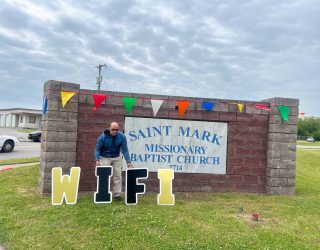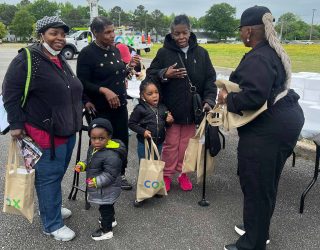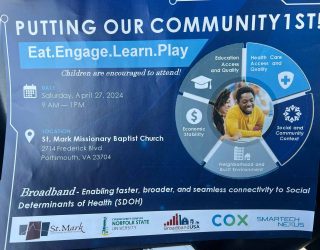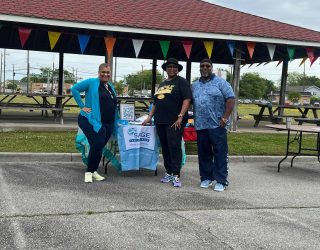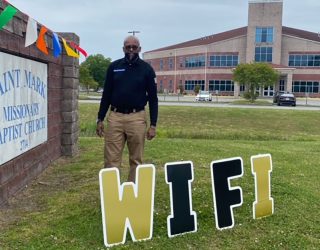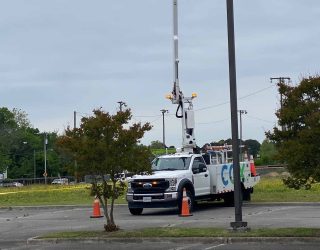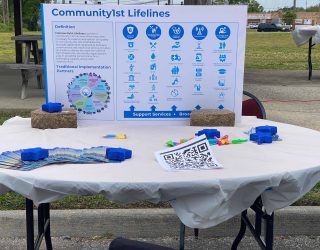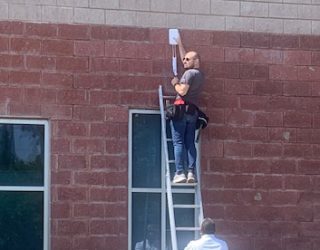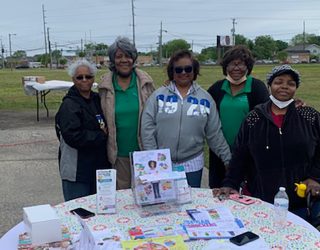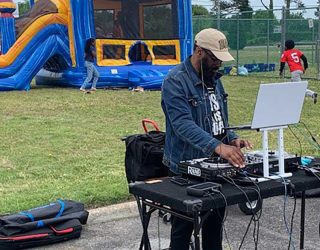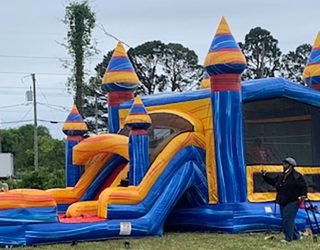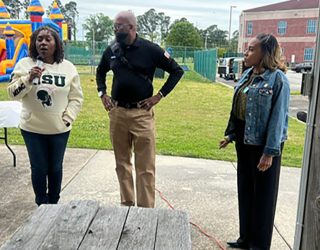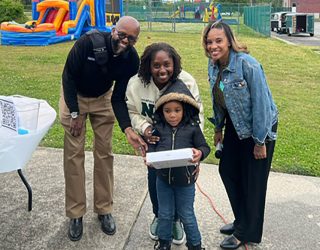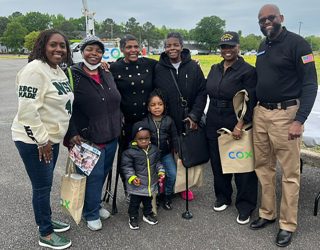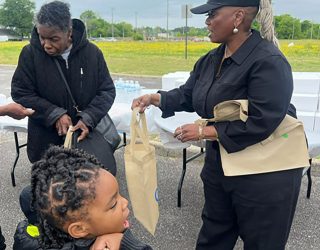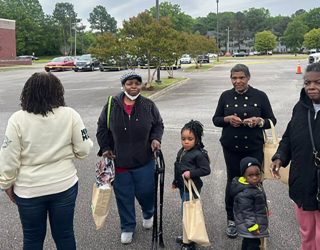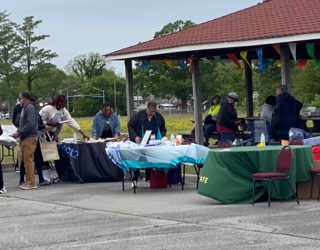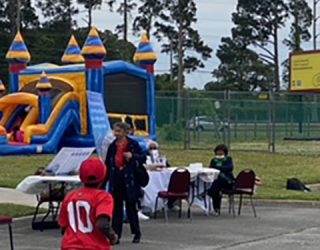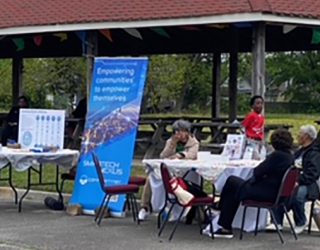Smart Campus & Community (SMARTCOM)
A CONNECTING MINORITY COMMUNITIES (CMC) PILOT
The Connecting Minority Communities (CMC) Pilot Program is a $268 million grant initiative authorized by the Consolidated Appropriations Act of 2021. Managed by the National Telecommunications and Information Administration (NTIA), the program aims to enhance broadband access, connectivity, adoption, and equity, particularly at Historically Black Colleges and Universities (HBCUs), Tribal Colleges and Universities (TCUs), Minority Serving Institutions (MSIs), and their surrounding communities.
The CMC Pilot Program emphasizes digital inclusion by providing broadband internet access services or equipment to students. It also supports the hiring and training of IT personnel. The program has exceeded its benchmarks, with 46% of awards going to HBCUs and 91% of funds used for providing broadband access to students.
INTRO
The Connecting Minority Communities (CMC) Pilot Program
IMPACT ON THE COMMUNITY
Broadband Capacity Building
The program facilitated the purchase of high-speed internet services and eligible equipment, allowing institutions to expand their broadband infrastructure. This enabled improved educational instruction, including remote learning opportunities.
Digital Inclusion
By hiring and training IT personnel, the program supported digital literacy and workforce development, which are crucial for closing the digital divide. For example, the College of the Marshall Islands developed strategies to train an IT-ready workforce to support both public and private sector needs.
Community Impact
The program spurred economic development and entrepreneurship by increasing institutional capacity and providing broadband access to students and community members. This was achieved through strategic projects tailored to local cultural and environmental contexts.
The Norfolk State University: connecting Minority Communities through a Future-Ready Smart Campus or NSU-SmartCOM proposed project will provide access to much-needed broadband service to more than 5,500 students and more than sixteen thousand residents living in underserved anchor communities in Portsmouth, Virginia. To stay competitive and leverage lessons learned during the COVID-19 Public Health Emergency, NSU must invest in its broadband infrastructure to ensure that it stays sustainable and relevant, enhancing the experience for students, faculty, administrators, and researchers, as well as for the Portsmouth community in which it coexists.
NSU will leverage relationships with the faith-based, private, and nonprofit sector partners to deliver higher broadband speeds to students and anchor community residents to work effectively from home while supporting an aging population that lacks reliable access to telehealth and students that lack access to streaming coursework which hinders opportunities to interact with an environment that is intuitive and effortless to use.
THE NEED
Why Norfolk State University?
POVERTY IN THE NSU COMMUNITY
Individuals are living in poverty may be able to secure employment given appropriate support and training. However, they may find that their wages, while surpassing poverty levels or the state minimum wage, fail to cover their essential expenses based on Portsmouth’s typical cost of living. Additionally, some individuals cannot work due to age, health, significant disability, or a lack of transportation options. For these individuals, overcoming poverty through employment may not be a reasonable expectation.
The Norfolk State University: connecting Minority Communities through a Future-Ready Smart Campus or NSU-SmartCOM offers 5 Gbps speeds on campus and a minimum of 100 Mbps upload and download to the Portsmouth unserved area and would significantly improve the capacity of the University to enable its students and anchor communities with leading-edge technology that engages, informs, and empowers. NSU’s vision for achieving future-ready Smart Campus Infrastructure will support intelligent campus operations, technology-empowered anchor communities, and student-driven innovation. The NSU- SmartCom solution is designed to allow NSU to collaborate with peers and scale. Our proposed solution will reshape how students study, learn and interact with the University and the Portsmouth community.
PROPOPSAL
How NSU will use the funding
1
Enable and encourage stakeholders in the public, private, nonprofit sectors to focus, prioritize and coordinate their broadband and technology-based effort to achieve maximum impact for NSU and the anchor communities that are within a 15-mile radius of its campus
2
Describe the NSU’ plans and opportunities for partnering with private companies and other organizations to deploy or utilize future-proof and secure broadband infrastructure to increase options for digital access across all four campuses
3
Provide educational guideposts to ensure more than 5,500 students and anchor community residents returning to work following the COVID-19 Public Health Emergency have the skills they need to succeed in technology-driven fields
4
Guide anchor community residents’ digital success and business growth
5
Demonstrate the capability of the NSU to become the most transparent, innovative, effective, and efficient educational institution
6
Empower faculty, students, and anchor community residents to help create innovative solutions related to online education, digital inclusion and equity, workforce, and digital skills development
7
Help guide technology-based investments for student entrepreneurs, technology startups, and small businesses
NSU-SmartCOM expands broadband access, and connectivity to NSU and its students, broadens remote instruction and adopts broadband internet services in anchor communities. The project funds initiatives that will enable NSU to provide broadband connectivity and implement innovative approaches to technology educations, training, workforce development, and community engagement in a manner that can be replicated and scaled to meet the growing broadband and technology demands of our HBCU. The following four approaches will operationalize the efforts from this grant.
GOALS
Outline of our projects in the pilot program
Project 1
Future-ready Broadband Infrastructure that enables faculty, students, residents, and businesses to become digitally engaged securely.
Project 2
Ensure the full participation of anchor communities and businesses in the digital economy through training and community engagement.
Project 3
Leverage data and new technology to make the Norfolk State University campus more efficient, effective, and available.
Project 4
Harness the power of students and work with technology innovators in the private and nonprofit sectors to accelerate technology advancements on campus and in anchor communities.
NSU-SMARTCOM IN THE COMMUNITY
